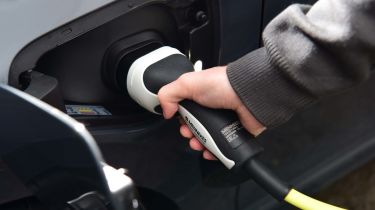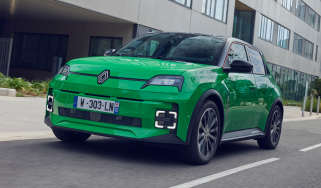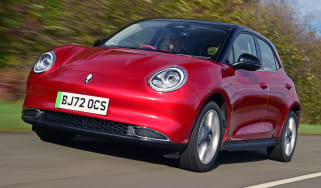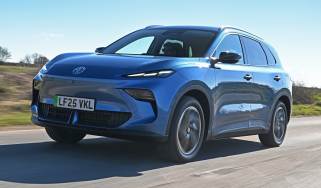Volkswagen Golf GTE range, MPG, CO2 & charging
Impressive claimed figures will be harder to match in real life, but the VW Golf GTE remains a very efficient car
| Fuel economy | CO2 emissions | Electric range | Wallbox charge time |
|---|---|---|---|
| 235mpg | 27g/km | 38 miles | 3hrs 40mins (0-100%, 3.6kW) |
Built to appeal to company-car users, the Golf GTE combines sporty dynamics with some impressive on-paper figures for fuel economy, CO2 emissions and electric range. But the same applies here as to every other plug-in hybrid on sale: you're unlikely to come close to the official numbers unless you keep the car's battery topped up, drive with a light touch and rely as much as possible on the electric motor rather than the petrol engine.
Volkswagen Golf GTE range, MPG & CO2 emissions
Our experiences with the Golf GTE and the broadly similar SEAT Leon e-Hybrid have resulted in an indicated average of 48mpg in mixed driving, and that's including a depletion of battery charge. It's some way off that impressive 235mpg headline figure, however.
Better news is that the car's 27g/km CO2 emissions mean it qualifies for ultra-low company-car tax rates – and while using electric power alone, it won't be responsible for any local emissions whatsoever. If you're diligent with charging the battery each night, and have a daily commute of around 30 miles, your average fuel consumption figure will drop dramatically compared to a regular petrol or diesel car.
Charge time
The Golf GTE's charging speed tops out at 3.6kW, so if you're using a suitable home wallbox, a full charge should take three hours and 40 minutes. Volkswagen also quotes a slower five-hour charge time when using a domestic supply and three-pin plug. The GTE comes as standard with two six-metre charging cables – a Mode 3 cable for use with wallboxes and public chargers, plus a Mode 2 cable for home use with a three-pin socket.





